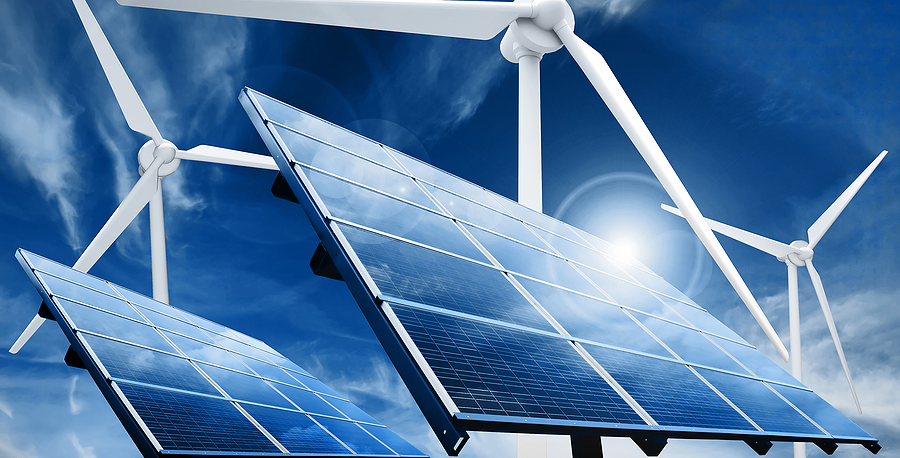Proximo Weekly: Talen genco’s shift to crypto
Talen Energy is looking to transition from debt-laden fossil-fuel based merchant power provider to renewables, whilst also developing its own data centre and cryptocurrency mining operations as in-house offtakers for its power output.

Generating companies – or gencos for short – do not get more old fashioned than Talen Energy. It owns 13,155MW of primarily coal, gas, oil and nuclear capacity, with about 140MW of solar thrown in. Its history goes back to 2001, and America’s first boom in power market deregulation.
But in its 20th year of existence, with its sponsors keenly aware that decarbonisation will not be kind to such a fossil-heavy portfolio, Talen is trying something different. Whether it has the time – and the financial headroom – to make a meaningful pivot will be keenly watched by other fossil-heavy US gencos.
New York-headquartered private equity firm Riverstone Holdings has owned some or all of Talen since its spin-off from PPL Corporation in 2014, and the portfolio has created headache after headache for its sponsor. Now Riverstone and Talen’s lenders will have to decide whether the pivot and a related recapitalisation can put Talen on a firmer footing.
From PPL Generation to Talen - a venerable genco
PPL, a Pennsylvania-based utility, was one of the first US utilities to make a push outside of its home service territory. By 2001 its unregulated portfolio comprised 9,800MW of capacity, including coal and hydro assets, a power marketing division, and distribution assets in the UK and Latin America.
That portfolio – PPL Energy Supply – was financed on a standalone basis, starting with a $500 million bond issue from October 2001. The generation portfolio was focused on Pennsylvania and Montana until PPL decided to sell the assets in 2015 so that it could focus on regulated utility assets.
PPL had already spent heavily on increasing its regulated portfolio. In 2010 it bought Louisville Gas and Electric Company and Kentucky Utilities Company from E.ON for $7.6 billion including assumed debt. In 2011 it increased its UK distribution footprint by buying E.ON’s central distribution portfolio for $3.5 billion. More recently it swapped those assets, plus some cash, for National Grid’s Rhode Island utility operations.
Talen was formed in 2014 when PPL spun off its unregulated US generation operations into a new vehicle. Excluded from that process was 630MW of hydro capacity that PPL had already sold to Northwestern Corporation for $890 million.
Riverstone contributed its generating assets to the new vehicle in exchange for a 35% stake, with PPL shareholders owning the rest. In 2016, Riverstone took Talen private.
The post 2016 environment for merchant fossil generators has been tough. Part of the Mach Gen portfolio of gas plants that Talen had acquired in 2015 for $1.175 billion was handed back to its lender Beal Bank in 2018, while the remainder filed for bankruptcy in 2020. Mach Gen was itself created when its developer, PG&E’s National Energy Group, went bankrupt in 2003, and had filed for bankruptcy in 2014 before its acquisition by Talen.
Talen, whose portfolio now comprises states other than Pennsylvania and Montana, was among the victims of the February blackouts in Texas’ ERCOT market.
Time for a pivot
Riverstone’s 2020 ESG report can point to solid progress in reducing the carbon footprint of Talen's portfolio. It notes that it retired 430MW of coal that year, and promised in November 2020 that it would close just over 5,000MW of coal capacity by the end of 2028. But those moves are as much a response to economic and regulatory pressure as an internally-generated mandate.
There have been better signs of a proactive approach to ESG in 2021. In April, Talen formed a joint venture with Pattern Energy to spend $2 billion on building 1,400MW of utility scale renewables. The PT Energy Transitions venture builds on Talen and Pattern’s sponsorship of the 100MW Montour solar plant, located at one of the coal plants that Talen is closing.
Then, earlier this month, Talen announced two 20MW demonstration battery storage projects, one at HA Wagner, a coal plant that Talen is retiring, and the other at Talen’s 145MW Camden gas and oil-fired plant. It says that those plants are the first two of a planned slate of 1,000MW of battery capacity, with individual projects as large as 300MW.
Most recently, Talen has proposed, in a private presentation to its debt investors, that it would spend up to $400 million ($225 million of that project-level debt) on a new data centre, and $300 million on a facility dedicated to mining cryptocurrency. The plans, according to one report, have not gone down especially well with those lenders.
Listed equity investors have sometimes welcomed pivots to crypto, most notoriously when Long Island Iced Tea, a drinks maker, renamed itself Long Blockchain in 2017, enjoying a short-lived boost to its share price. More recently, cryptocurrency prices have risen or fallen in response to pronouncements from Elon Musk, the CEO of EV and battery manufacturer Tesla.
More headroom required
But debt investors, even high-yield ones, are a little more hard-headed. And with Talen’s leverage at high levels, these investors’ opinion is key. As of November 2020, according to Fitch ratings, Talen’s debt comprised a $690 million revolver, a $427 million senior secured term loan that matures in 2026, $750 million in secured notes due 2027 and $870 million in secured notes due 2028.
Fitch rates Talen at B, and its secured debt at BB, while Moody’s rates it B2. Talen’s unsecured debt trades at around 85% of par, while its secured debt trades at nearer 95%. No details of any recapitalisation have been released publicly, but the negative bondholder reaction suggests some increase in leverage (or - less likely - a possible conversion of debt to equity) to meet the roughly $800 million cost of the digital assets.
Talen and Riverstone enjoy a few advantages in executing this pivot. The Mach Gen plants were a drain on liquidity, and their disposal is no great loss. The same is likely for the coal capacity. Talen owns 2,256MW of nuclear capacity, though it is rather old, and a 22-strong fleet of gas-fired peaking plants, some of which are also rather old.
Cryptocurrency mining is hugely energy intensive, and while the ideal mining operation runs on ultra low-cost hydropower, most miners, particularly in China, are driving demand for coal-fired power. Using its in-house generation fleet to power data applications may give Talen’s fossil portfolio a boost going into planned retirements.
The convergence between power infrastructure and digital infrastructure has long been predicted. Tech companies are big purchasers of renewable electricity, and several renewables developers have examined branching out into digital infrastructure, bundling renewables, batteries and data centres together.
Talen would take this further, and other old-line gencos might find that data centres are a good in-house source of demand for baseload power. Genco debt investors are a patient bunch – over the last 20 years they have had to be. But coming up with the correct $/kWh debt amount is hard enough when taking into account power and fuel prices. Data demand makes that job even harder. Talen’s pivot will be one to watch, if not emulate immediately.
Selected news articles from Proximo last week
NORTH AMERICA
DFC set to be able to finance 5G projects in 22 European nations
House lawmakers have reintroduced legislation that would allow the US Development Finance Corporation to fund 5G infrastructure projects in 22 countries in Central and Eastern Europe.
EUROPE
Cubico refinances 2 CSP plants in Spain
Cubico Sustainable Investments has closed the green refinancing of the Moron and Olivenza concentrated solar power (CSP) projects in Sevilla and Badajoz, Spain.
ASIA-PACIFIC
China's Huayou invests in $2.1bn Indonesia nickel project
China’s Zhejiang Huayou Cobalt Co has announced plans to partner electric vehicle battery maker EVE Energy and others in a $2.08 billion nickel and cobalt project in Indonesia.
MIDDLE EAST & AFRICA
BOAD agrees $177m for infrastructure project financing
The West African Development Bank (BOAD) has approved four new loans totalling XOF95 billion ( $177 million) to finance a series of infrastructure projects.
LATIN AMERICA
Chile tenders Hospital de Coquimbo concession
Chile's Ministry of Public Works has published a call for bids for the design, construction and maintenance of the new Hospital de Coquimbo medical complex, as well as the provision and maintenance of medical equipment and furniture.
The Proximo Membership
Join a brand new community of project finance professionals getting unrivalled access to unique analysis, market data and a global portfolio of expert industry events in the energy and infrastructure space. Click here to find out more





